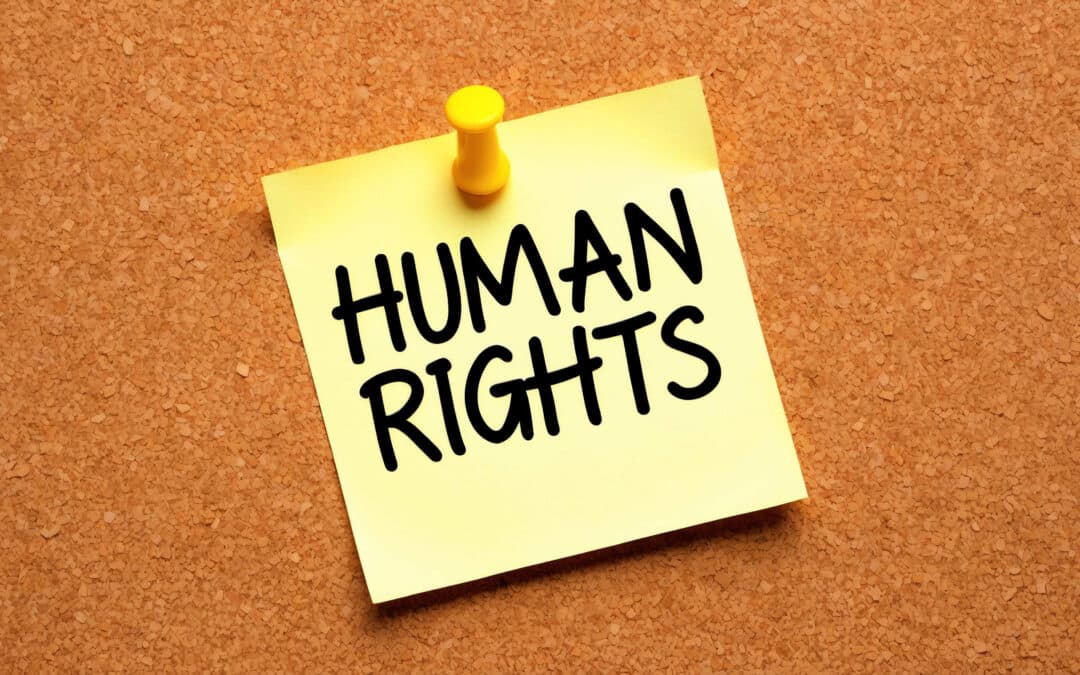From the Desk of Wendy Wixom:
The term “human rights” is bantered about regularly within the UN system; cries such as “Women’s rights are Human Rights!” “Abortion is a human right!” are a constant. Navigating these ideological minefields is always a challenge. Cristina Cevallos explains some of the history and nuance of Human Rights.
Read and then ask yourself the questions: 1) What constitutes a human right and 2) What can I do to protect them? It’s an important exercise.
On behalf of true human rights,
Wendy Wixom, President
United Families International
The Battle Over Human Rights
By Cristina Cevallos
If someone were to ask you to provide a definition of the term “Human Right,” what would be your response? It’s a question that continues to be debated internationally and domestically as politics, advocacy, and culture attempt to interject their favored position into the dialogue on Human Rights. The Nuremberg Trials, apartheid South Africa, and the Rwandan Genocide, these historic events might seem very far from our reality. Whereas free speech, the right to work and praying in a temple may be more familiar. Although it may not seem so, both fall under the same umbrella: that of human rights.
The right to life, equality, religious freedom, as well as all other human rights can manifest themselves in different ways in time and space. This variation complicates the task of establishing a clear definition of what a human right truly is.
The Problem of Defining Human Rights
According to the United Nations, human rights are entitlements we have simply because we exist as human beings. While this basic notion is widely accepted, debates persist regarding how they should be interpreted and implemented.
Some criticize that they are not universal, since they are applied very differently depending on the context. For example, North Korea’s approach to the right to property varies significantly from Finland, but both have signed the Universal Declaration of Human Rights (UDHR). Moreover, activists label issues they wish to draw attention to as human rights to make them demandable and enforceable.
The Role of International Law
The modern concept of human rights gained significant prominence after World War II and has since inspired numerous international treaties designed to promote and safeguard these rights globally.
Some of the most relevant ones are the following: the UDHR, the Convention on the Prevention and Punishment of the Crime of Genocide, the International Covenant on Economic, Social and Cultural Rights, the International Covenant on Civil and Political Rights, the Convention of the Elimination of All forms of Discrimination against Women, the Convention on the Rights of the Child and the Geneva Convention.
Treaties have also created international organizations that bring states together to monitor their compliance on different issues. Nowadays most of what is being said about human rights can be found in these international bodies’ work as they review, judge and make recommendations regarding “human rights” for the nations of the world.
Almost every country in the world is part of the United Nations, created to promote peace, security, and cooperation between countries. At a continental level, the Organization of American States, the European Union, the Council of Europe, the African Union, the Association of Southeast Asian Nations, and the South Asian Association for Regional Cooperation promote regional cooperation and the development of human rights issues.
There are also several international courts with jurisdiction over human rights, such as the International Court of Justice, the International Criminal Court, the Interamerican Court of Human Rights, the European Court of Human Rights, and the African Court on Human and Peoples’ Rights.
Private Entities Shaping Human Rights Discourse
Private institutions play a crucial role in advancing human rights claims. Many of these organizations have a global influence due to the information they share and the funding they provide for initiatives worldwide. They can be non-governmental organizations, think tanks, institutes, and foundations and be focused on research, advocacy, court cases, statistics, social projects, etc.
Some promote a progressive approach: Amnesty International, Human Rights Watch, Oxfam, American Civil Liberties Union, Open Society, Bill & Melinda Gates Foundation, Ford Foundation, National Organization for Women, International Planned Parenthood Federation, Guttmacher Institute, Population Council, Aspen Institute and the Institute for Policy Studies.
Others defend a conservative perspective: The Heritage Foundation, Family Research Council, the Center for Family and Human Rights, Concerned Women for America, the Acton Institute, the Cato Institute, the Becket Fund for Religious Liberty, the Federalist Society, Alliance Defending Freedom, the Religious Freedom Institute and the National Center on Sexual Exploitation.
Current Human Rights Issues
Dealing with contemporary human rights issues means finding different, and most of the time, opposite points of view. For example, in terms of women’s rights, many will speak out against sexual harassment, female genital mutilation, child marriage, and sex trafficking. However, opinions vary as to recognizing prostitutes as sex workers or allowing transsexuals in female competitions.
Likewise, there is latent pressure to recognize LGBT claims as human rights. For example, allowing same-sex marriages and adoption by these couples, sex change surgeries, gender quotas, recognition of transsexuality in IDs, and criminalizing hate crimes.
Regarding the prohibition of racial, ethnic, and religious discrimination, there is tension between those who promote the rights of refugees and migrants and those who see problems in the loss of security, loss of national culture, and the illegal component of immigration.
Also, while some claim that there is discrimination against African Americans and Indigenous people in North America, others point out that attention should be focused on abuses that are truly systemic, such as those occurring against the Uighurs in China and the Rohingya in Myanmar, who are being killed by authoritarian regimes.
As for freedom of expression, some support fact-checking initiatives and blocking of accounts, or of social networks altogether (such as China and Brazil). Others consider this to be censorship as people are forced to be politically correct or not to question the regime.
Concerning religious freedom, one perspective supports the prohibition of conscientious objections and the limitation of worship for public health reasons. In contrast, the opposing viewpoint highlights that religious persecution can manifest in various forms, from compelling individuals to act against their beliefs to outright violence, as seen in Nigeria and Pakistan.
Issues such as vaccines, euthanasia, abortion, surrogacy, in vitro fertilization, contraceptives, genetic modification, and transhumanism (the enhancement of human capabilities through technology) create moral challenges and pose risks to the dignity that is meant to underpin the concept of human rights.
What Should We Do?
The difficulties that arise from the “Human Rights” discussion are significant. Those in positions of power and wealth are utilizing global governance through organizations like the UN and the World Economic Forum, along with other strategies, to shape outcomes to their advantage. Additionally, the shortcomings and loopholes in international law, as well as monopolies in technology and media, complicate the pursuit of a true understanding of human rights.
Human rights efforts can be agenda driven if there is not a clear focus and understanding of what constitutes a human right. It is not enough to simply say, “I think the issue I am most passionate about deserves to be elevated to the position of a “human right” (abortion, women’s rights, education, healthcare, even leisure). One clarifying point might be, “If another person is required to write a check to pay for my “human right,” can it truly be classified as a human right?” Education, healthcare, social security, etc., are all things to which a society could rightly aspire to provide, but should they be classified as a “right?”
However, as mentioned earlier, true human rights are a matter of daily life, and it is our responsibility to uphold human dignity and promote justice. Therefore, we must actively combat violations of these rights, educate ourselves, and stay informed to support not only local causes but also those that may seem more distant. By backing institutions that advocate for our values, we can make a meaningful impact and save lives close and far from home. Fighting for your rights and the rights of others is a natural obligation, don’t be afraid to fulfill it.
__________________________________________________
 Cristina Cevallos is a Peruvian Law professional. She is passionate about issues related to cultural heritage and the defense of traditional values, especially the sanctity of life and religious freedom. She has been part of different volunteer and entrepreneurship programs internationally and loves doing projects with children, going to the beach, and learning about art history. Her goal is to travel the world helping people find true happiness.
Cristina Cevallos is a Peruvian Law professional. She is passionate about issues related to cultural heritage and the defense of traditional values, especially the sanctity of life and religious freedom. She has been part of different volunteer and entrepreneurship programs internationally and loves doing projects with children, going to the beach, and learning about art history. Her goal is to travel the world helping people find true happiness.

